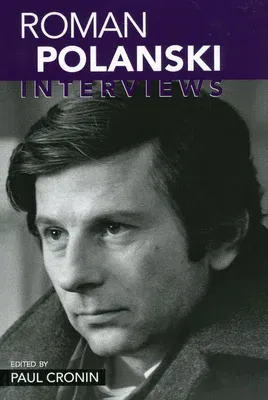Roman Polanski (b. 1933) arrived on the international scene in 1962 with
his first feature film, Knife in the Water, and his face would be on the
cover of Time magazine by the end of that year. His vibrant, disturbing,
and often violent films--including the psychological thriller Rosemary's
Baby, the film noir classic Chinatown, and the somber Holocaust drama
The Pianist--have entertained and sometimes infuriated audiences.
Stylistically unsettling and thematically varied, Polanski's films have
established him as one of the most talented and controversial European
filmmakers of his generation. Polanski's life has been troubled. He
survived the Krakow ghetto and the Holocaust, but his mother died at
Auschwitz. His wife Sharon Tate was brutally murdered in 1968 by members
of Charles Manson's cult. After years of success in the United States,
he fled the country in 1978 when he was convicted for having sex with a
minor. He hasn't returned to America since that time. In Roman Polanski:
Interviews, the acclaimed director talks openly about how incidents in
his life have and have not influenced his artistic vision. This
collection of interviews spans nearly forty years and comprises
translations from French, German, and Spanish newspapers and magazines
and transcripts of British and American television and radio
appearances. Paul Cronin has published several books, including volumes
on Werner Herzog and Alexander Mackendrick. Through his production
company Sticking Place Films (www.thestickingplace.com), he has made
films about Haskell Wexler's Medium Cool, curator and historian Amos
Vogel, and Mackendrick's teaching career.


